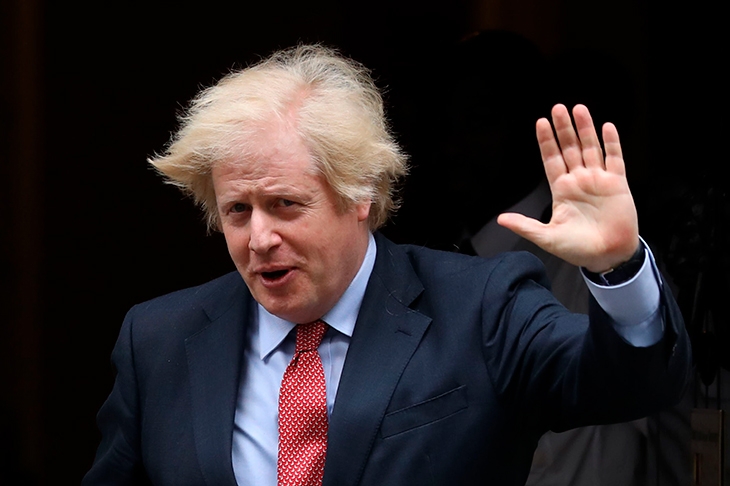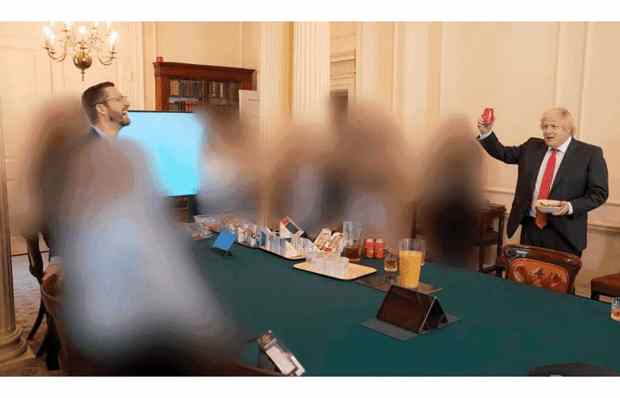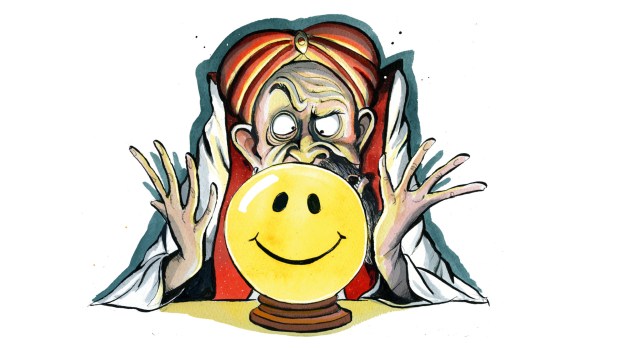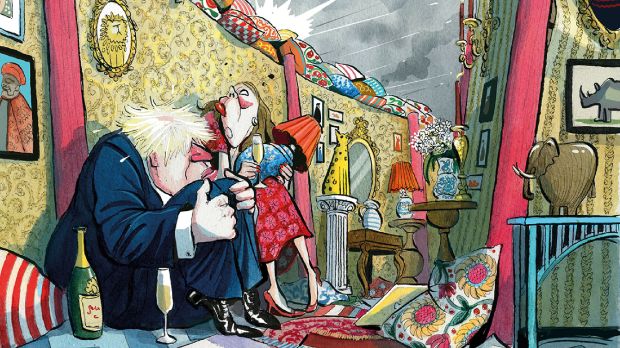There is a grim inevitability to the trickle of round-robin letters from scientists who feel aggrieved at the government’s handling of the Covid-19 crisis. Right from the beginning, the Prime Minister gave scientific advisers a very public platform at the heart of government. He realised that if it became necessary to impose the most severe restrictions on personal freedom any government has had to introduce in peacetime, it would help if the public could see policy was being shaped by experts who understood the threat.
But as time has gone on it has become increasingly clear that there is no such thing as ‘the science’ — a mythical set of incontrovertible truths. Scientists are as divided as politicians and the general public on how to tackle Covid-19. There is no better demonstration of this than the World Health Organisation’s about-turn this week over the issue of whether asymptomatic individuals — who some evidence suggests may make up 80 per cent of cases — can spread the virus. At first a WHO official said that such transmission is very rare. Later, the organisation rescinded that advice and said it wasn’t sure. Meanwhile, a Californian study claimed that up to 45 per cent of cases of Covid-19 may have been spread by asymptomatic people. How is a government supposed to make sense of this? The extent of asymptomatic infection is crucial to the effectiveness of the ‘test and trace’ system in which it has invested many millions. And yet science can provide no definitive answers.
The essential problem is that, as Covid-19 is a new virus, we still know little about it. Evidence is coming through in dribs and drabs, much of it contradictory. In the absence of real-world proof we have modelling, yet the models are worlds apart in their conclusions. In imposing lockdown, the government followed the advice of a modelling team at Imperial College London, which estimated there would be 250,000 deaths if drastic measures were not taken. Had the government preferred the models of a rival team from Oxford, which suggested that the infection could have been widespread before lockdown was imposed, it may well have come to a different conclusion and followed a path more similar to that of Sweden. Either, it could have been said, would have been informed by ‘the science’.
Individual scientists have changed their minds: some dramatically so. Over the past week Professor John Edmunds, of the London School of Hygiene and Tropical Medicine and a member of the Sage committee, has complained that the government is relaxing lockdown too early and that many lives could have been saved had restrictions begun a week earlier. Yet the same Professor Edmunds gave an interview on 13 March — ten days before lockdown restrictions were imposed — in which he said: ‘The only way to stop this epidemic is indeed to achieve herd immunity.’ If the government was late in imposing a lockdown it was because they were following the advice of Professor Edmunds and his colleagues.
It suits the government’s opponents to try to establish a narrative that a reckless Prime Minister has ignored the science. It helps, too, that No. 10 struggles to defend itself. But the claim is still false. On the contrary, Boris Johnson’s fault has been to display too much reverence for epidemiology and to take too little advice from other quarters, such as from economists who could have warned him of the debilitating effects of lockdown on the economy; from educationalists who could have warned of the damage it can do to a child’s life chances if formal education is withdrawn for a long period; from psychologists and social workers who could have warned about the effects of isolating the seven million Britons who live on their own. One of the disturbing details to have emerged this week is of elderly people whose bodies have been discovered in their homes a week or two after their death, their usual pillars of community support having been removed by lockdown.
Never has there been a better demonstration of Margaret Thatcher’s adage: advisers advise but minister decide. What Johnson needs to do now is to take back control from the scientists. He needs to appreciate that they have no definitive answers on this. The skills required of scientific adviser and Prime Minister are wholly different. While the former has to drill down on one narrow question at a time, the latter has to balance all manner of competing demands, from medical, to economic, to moral. One difficult issue has been how much access to allow people to relatives who may be sick or dying from the disease. A blanket exclusion of visitors from all hospitals might be the safest policy, but it is hardly the most humane.
The British government has made many mistakes over Covid-19. So, too, have other governments. Germany has had shortages of PPE, the Netherlands ordered equipment which turned out to be useless, Italy and Spain have had even worse scandals over care homes than Britain. Even countries which have been relatively lightly affected, such as Japan, seem to have done well more out of luck than judgment.
But one thing you can’t say is that the UK government has ignored science. It has tried to follow it throughout the epidemic, but has found no consensus. To get us back to normal life, however, the Prime Minister is going to have use his own judgment. It is not an enviable call to have to make; but then making difficult decisions which would keep most of us awake all night is the very essence of the job of prime minister.
Got something to add? Join the discussion and comment below.
Get 10 issues for just $10
Subscribe to The Spectator Australia today for the next 10 magazine issues, plus full online access, for just $10.
You might disagree with half of it, but you’ll enjoy reading all of it. Try your first month for free, then just $2 a week for the remainder of your first year.














Comments
Don't miss out
Join the conversation with other Spectator Australia readers. Subscribe to leave a comment.
SUBSCRIBEAlready a subscriber? Log in